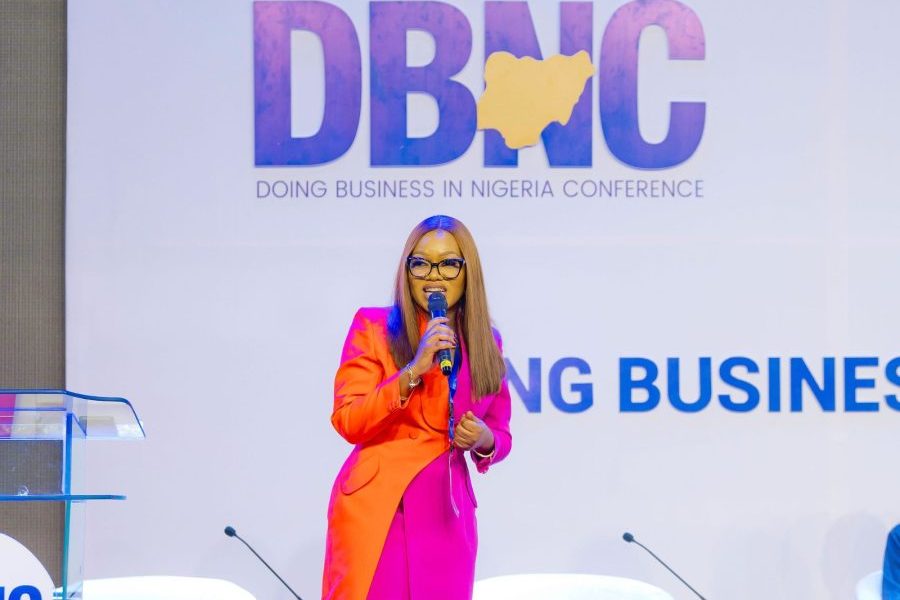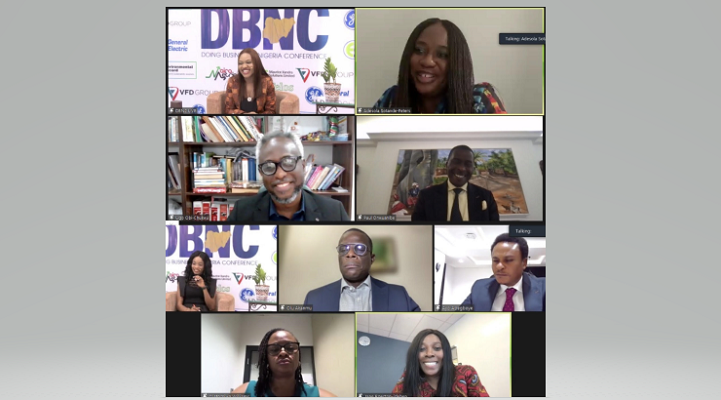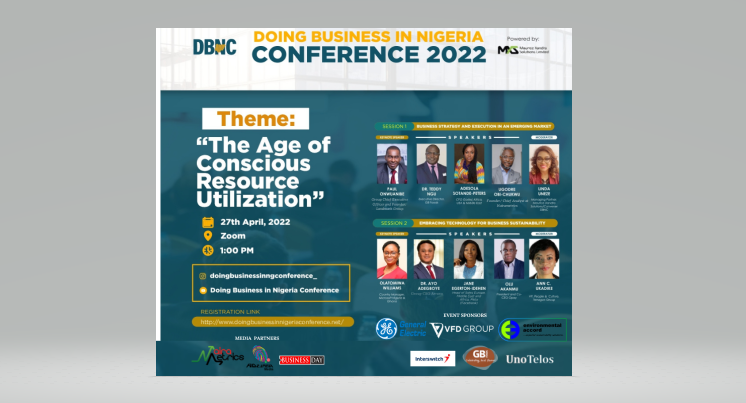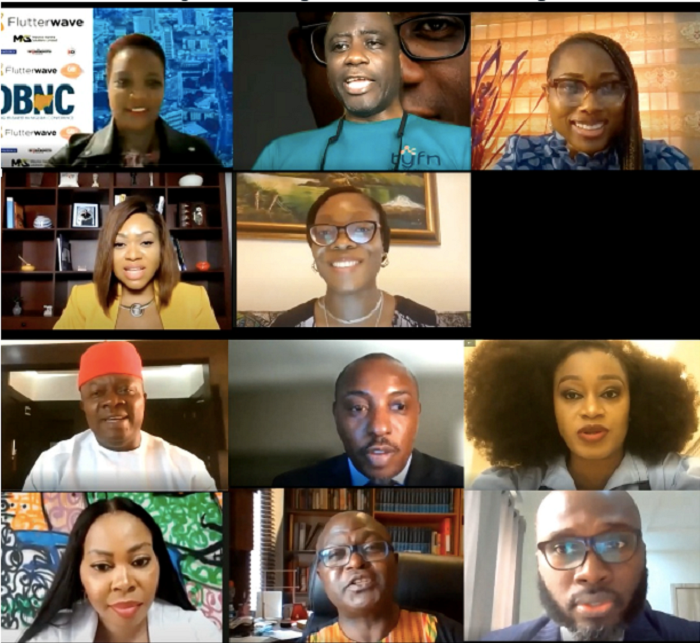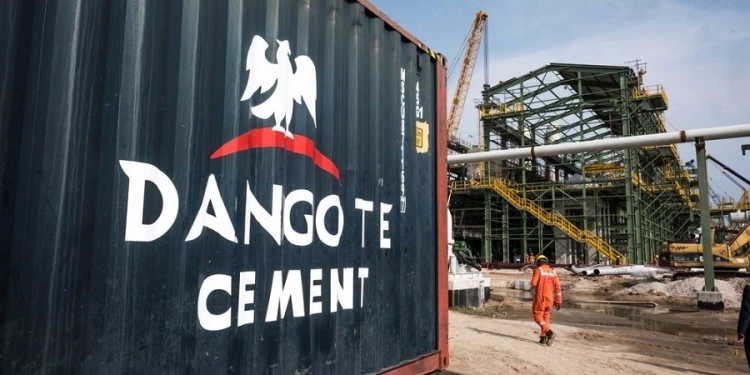Article summary
- Nations need to develop internally at least to a minimal standard; otherwise order and stability would not be possible.
- Organisations must begin to reinvent value creation and strategic investments in technology to succeed.
- Olalekan Salami, the Chief Executive Officer of ONEID, emerged as the winner of a $10,000 prize as a grant for his startup.
A security expert, Rear Admiral Cor Ezekobe (Rtd), has charged that economic development is a veritable tool to reduce the rising trend of insecurity in Nigeria and beyond. He says that security is development, and without development, there can be no security.
He made this remark recently while making a presentation at the Doing Business in Nigeria Conference (DBNC), a platform that brings together business experts who share ideas and ways to sustain businesses in Nigeria annually.
Doing Business in Nigeria Conference is a platform where individuals who desire a positive change in their businesses meet with business experts who share their knowledge about running businesses in Nigeria. The recently held conference was the third edition and counting.
Development is security
In his presentation titled: “Security As Yardstick Of A Nation’s Attractiveness For Business”, Ezekobe, who quoted Robert McNamara, an American businessman and former U.S. Secretary of State, said in defining national security, former president, Olusegun Obasanjo, had seen national security as the aggregate of the security interest of all individuals, communities, ethnic groups, and political entities.
He stated that though Obasanjo attempted to define national security in contemporary times, he did not aptly connect it with the economic imperatives, which is the crux of our discourse.
He, therefore, adopted McNamara’s version, which espoused that;
- “Security is not military hardware, though it may include it. Security is not a military force, though it may involve it. Security is not a traditional military activity, though it may encompass it. Security is development, and without development, there can be no security”.
Ezekobe made a connection between security and the economic wellbeing of the citizenry. He noted that the World Bank divides nations based on per capita income into rich, middle, poor, and extremely poor.
Extremely poor countries suffer from wars
He stated that studies have shown that 32 out of about 38 extremely poor countries in the world have suffered significant conflicts.
- “This trend also affects the poor and middle-income nations of the world, though to a lesser degree in line with the poverty level. It therefore follows that there is a direct relationship between violence and the economic backwardness of a nation.
- “There is also a noticeable youth bulge in most of the extremely poor and poor nations of the world, accompanied by unemployment and an inability to create wealth and jobs to engage the teeming youth in these countries; Nigeria is not an exception. This is a recipe for violence, as enunciated in the Youth Bulge Theory.
- “In pragmatic terms, security implies a minimal measure of order and stability. Nations need to develop internally at least to a minimal standard; otherwise, order and stability would not be possible. Devolving from the foregoing, security in this context is assumed to mean economic, social, and political progress.
- “This entails a reasonable standard of living, and it follows that as development progresses, there is a corresponding increase in security,” said Ezekobe.
He said trend analysis suggests a correlation between armed banditry, militia groups, kidnapping, and cattle rustling in what appears to be a convergence of illegal networks.
- “This has led to the loss of lives and property and ultimately undermines peace, with grave implications for human security. Most Nigerians who can afford it no longer travel by road. How then do we expect foreign investors to reach their target environment?”
In a related development, the President GCEO, Transcorp Group, Dr. Owen D. Omogiafo, also presented on the topic of “Business Resilience in Turbulent Times.
She stated that organisations must begin to reinvent value creation and strategic investments in technology to succeed. She said this could mean a total business model reinvention, but it might just be what they need to thrive in the business landscape.
She said transformation can only happen when there is capacity and resources to make a switch, so companies must reassess their functions.
- “Regardless of the kind of transformation being undertaken, talent and capacity are key. Companies need to design flexibility and durability into their strategies,” she said.
Future survival
Quoting a report by PwC’s 2023 CEO Survey, she said 40% of CEOs say they don’t think their business will be viable in the next 10 years if they do not change and incorporate resilience.
Omogiafo, who boasted about the Group’s bottom line feat of N75.3 billion in 2020, N111.2 billion in 2021, and N134.7 billion in 2022, said developing a resilience agenda that addresses short-term issues and longer-term challenges is essential.
Transcorp Group’s share price has risen from ₦0.57 in 2020 to ₦3.12 traded on the Nigeria Exchange in 2023.
Harping on the flexible management approach at Transcorp, she said the ability to adapt to abrupt changes in business hinges on having a vision, communicating the vision, and engaging the whole organization in the vision.
There were two-panel sessions, the first focusing on Diversifying The Nigerian Economy, which brought together Ben Liewellyn, Rotimi Odusola, Engineer Edu Okeke, and Lola Esan.
The second-panel session, which focused on the Role of Security in Business Exchange, brought together Bukola Smith, Taiwo Dayo-Abatan, Wale Olaoye, Oyinpreye Aigbogun, and Tanwa Ashiru.
$10,000 grant for startups
One of the highlights of the event was a $10,000 prize for business pitchers. Olalekan Salami, the Chief Executive Officer of ONEID, emerged as the winner. The startup pitching exercise was keenly contested by Oluwakemi Akorede, the chief executive of NUTRABOOM, Nurein Akindele, the chief executive of SAKULA, Charles Okala, the chief executive of WANO and Olalekan Salami. The pitch was overseen by a panel of sound judges, who, although they deemed all the contestants’ products scalable, adjudged ONEID the most scalable.
The $10,000 prize money was awarded by Providus Bank.
ONEID startup aims to unify all Nigerians’ identities into one portal so that the government and private entities can get the identities of individuals at once.
About The Convener of Doing Business in Nigeria Conference (DBNC)
The convener of the conference, Linda Uneze, is the Managing Partner/Co-founder of Maurice Xandra Solutions, an HR consulting firm. Her outstanding strategies have boosted the companies she has rendered her services to over the year across various sectors, i.e. Health, Hospitality, Fin-Tech. Etc.
She is a certified transformational coach and a member of the International Coaching Federation. She has mentored business executives, youth, and individuals who dared to live above limitations.
Uneze has an MBA from Manchester Business School and a B.A. from Anambra State University, where she graduated with first-class honors. Some of the places she has worked includes MTN Nigeria and Environmental Accord.
The Convener, Linda Uneze stated that the responsibility of making the economy attractive does not only reside with the government, as entrepreneurs and other key stakeholders should play a part. This she said is what led to the idea of having a business pitch segment at the conference, to give SMEs the opportunity to showcase their innovative ideas and products to potential investors and customers.
She mentioned that the business pitch is her way of empowering and supporting SMEs as well as promoting job creation and nation building.
Out of the applications received, 4 businesses were selected, as they pitched to a panel of Judges and the winner was awarded 10m USD by the DBNC Ltd.
The business leader, who is also an alumna of the Human Resource Certificate Institute, USA, has been consistent in solving business employer/employee-related issues, as well as offering business solutions for her clients. Her passion to see businesses thrive in Nigeria is one of her reasons for birthing the Doing Business in Nigeria Conference, which is a platform to encourage experience sharing on the business environment in Nigeria, thereby attracting more investors.

